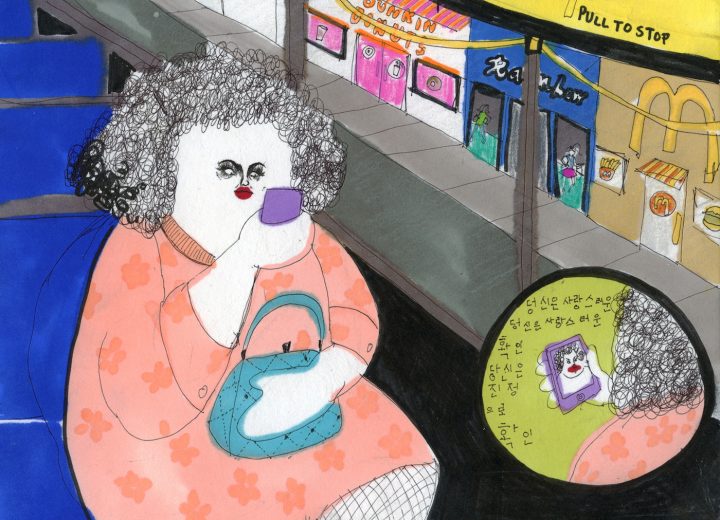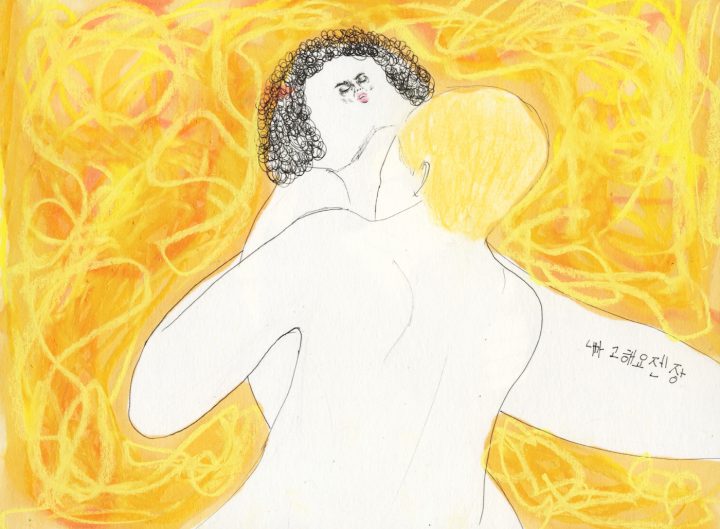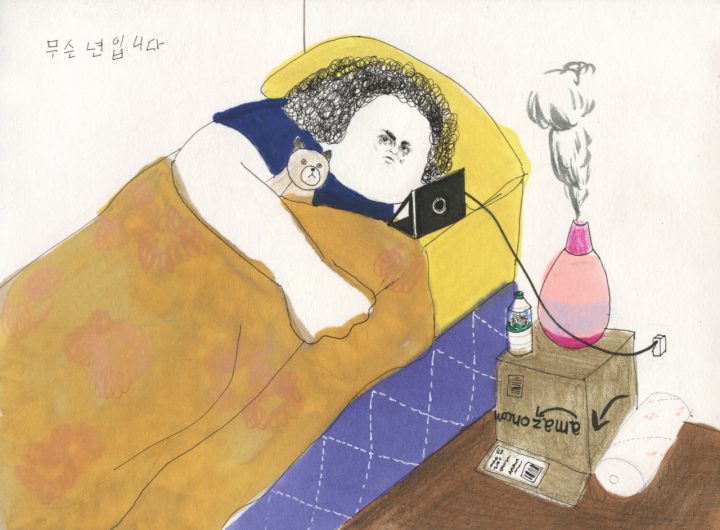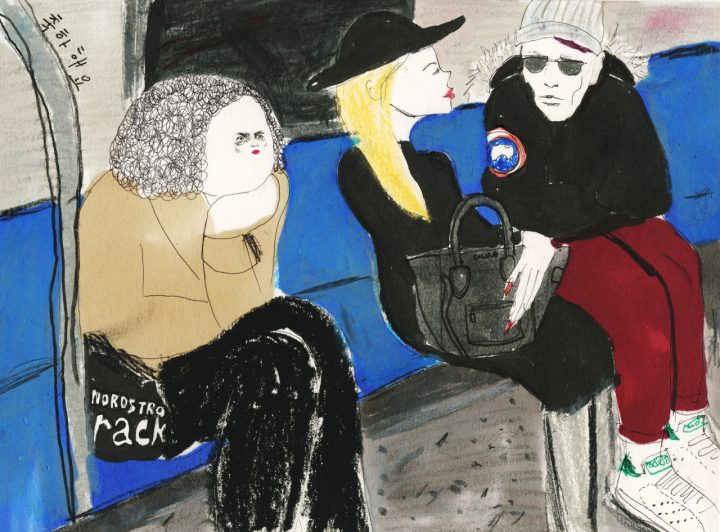
In the age of social media, most have at least dabbled in public self-documentation of their personal lives, though few dare to be as openly unflattering — and deeply revealing — as Kyung Me. Her current solo exhibition at MILLER on the Lower East Side presents a selection of drawings from her daily journal, a loosely chronological narrative of one second-generation Korean American woman’s experience of navigating life in New York. Interwoven with moments of dry humor, Kyung Me’s adventures include iffy relationships and internal conflicts that produce all-too-relatable feelings of malaise, alienation, and self-loathing.

Candidly titled Bad Korean, the exhibition explores the meaning of being “bad” — disobedient, sure, but specifically in contrast to cultural definitions of what it means to be “good.” The images are also captioned with grammatically bad Korean derived from Google translate, as Kyung Me does not know the language herself. Fully aware of her otherness, Kyung Me conveys precisely what cultural norms she fails to conform to — though not for a lack of desire or trying.
Kyung Me’s character is both a grossly exaggerated self-portrait and an opposition to traditional norms of Korean beauty. She is bloated and frizzy-haired; not characteristics of Kyung Me in real life, yet symbolic of her discomfort with often being told she has a “moon face,” a Korean term for describing women with wide faces. Kyung Me’s avatar captures the psychological burden of feeling too visible when cast by others as undesirable. Undersized features are tightly centered on an expansive face in a way that resembles the “okay guy” internet meme, another emblem of perpetual rejection — ugly by some standards, yet highly empathetic and endearing.

There are also pleasurable discoveries of female sexuality. In pieces with titles like “fuck it im high,” Kyung Me rebels against notions of restricted lust, acting upon sexual instincts with careless urgency. Then there are portrayals of outright disenchantment with contemporary social conventions. In “i get bored as i get older,” Kyung Me exhibits about as much delight in a formal dining experience and the theatrical flash of a phone camera as the bartender in Edouard Manet’s “A Bar at the Folies-Bergère” (1882).
The antagonist in Kyung Me’s saga is often a material object that delivers judgment: a reflective surface, the front-facing smartphone camera, and a Céline bag in the arms of a slim blonde. Anxieties forming from an inability to compete not only stem from being Korean American, but the combination of being poor and Korean American in a city where the parade of brands forms a constant din — a reminder of unattainable beauty and trigger of envy.

Though a child of Korean immigrants, Kyung Me has admitted to being more influenced by Japanese art, which shows in the occasional manga-like frames and interjecting text overlays in these works. The dejected character, though decidedly less kawaii in proportions than a Yoshitomo Nara figure, at times embodies a similarly cognizant childishness.
A charmingly self-deprecating show, Bad Korean is a deeply personal exploration of feeling alienated from both one’s own body and one’s environment. Kyung Me’s sketches initially appear rough and hurried, with loose outlines and plain washes of color that carelessly overstep their bounds. Her facial expressions are an exception. Consistently illustrated with profound sensitivity, her drawn avatar’s face elucidates a complex conflation of conflicted feelings. She offers a rare feminist window into second-generation intersectionality, achieved at a human scale.




No hay comentarios:
Publicar un comentario